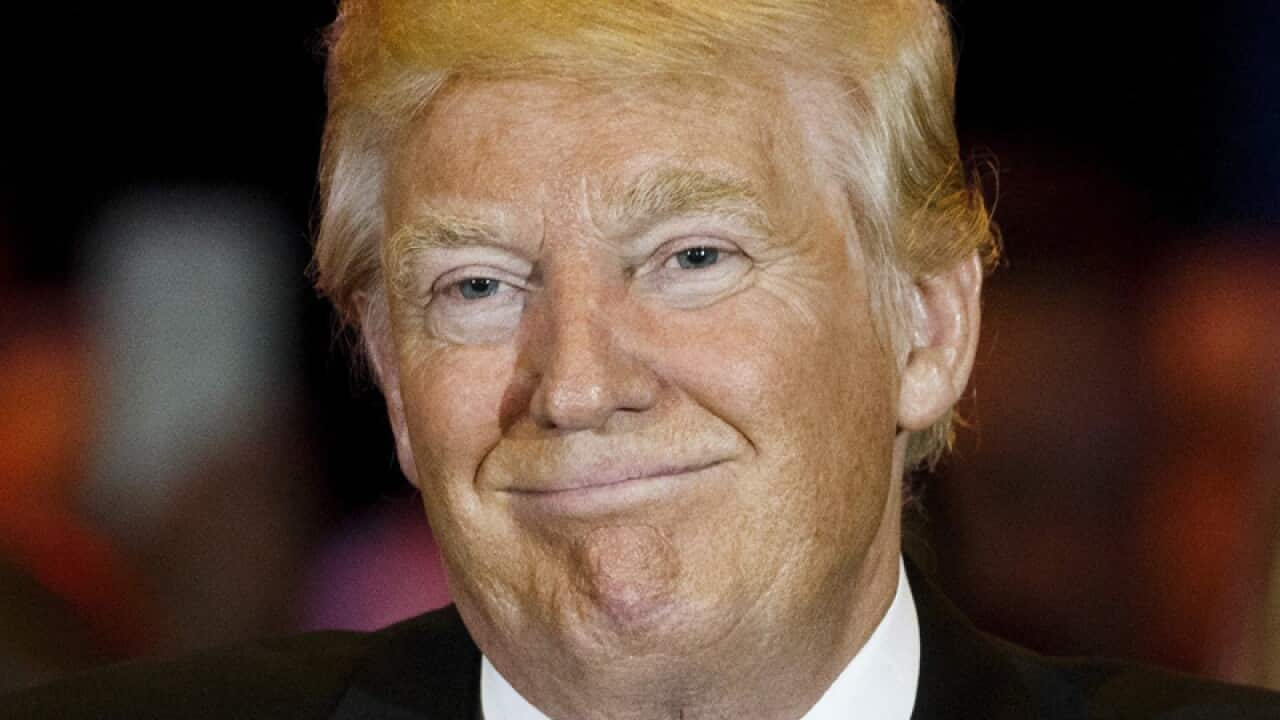Donald Trump has become the last man standing in the race for the Republican US presidential nomination and faces the challenge of repairing deep fissures in the party, as his sole remaining rival John Kasich ended his campaign.
Anointed the presumptive nominee after winning the Indiana primary on Tuesday and driving his closest rival, US senator Ted Cruz, from the race, the 69-year-old New York billionaire planned to set up a vice presidential selection committee and step up efforts to seek unity among a wider group of Republicans ahead of the November 8 election.
Trump's win in Indiana cleared the way for him to prepare for a likely general election match-up against Democrat Hillary Clinton.
The former secretary of state lost the Indiana primary to tenacious challenger US Senator Bernie Sanders, but remains on course to become her party's nominee.
Trump told NBC News he would probably work with the Republican National Committee to raise about $US1 billion for the general election campaign.
Kasich, the Ohio governor, had stayed in the race in hopes of persuading Republicans to choose him as the nominee at a contested convention in July. He ended his campaign as a clear path emerged for Trump to amass the delegates needed to secure the nomination outright.
Some Republican leaders said they would support Trump since he would be the nominee, stressing the importance of defeating Clinton in the general election.
But there was no mad rush to support him as is typically the case when a presumptive nominee is crowned.
Former president George W. Bush, whose brother Jeb was defeated by Trump in the primary campaign, made clear he was staying out of the race.
"President Bush does not plan to participate in or comment on the presidential campaign," said his spokesman Freddy Ford.
A similar statement was issued by the spokesman for Bush's father, former president George HW Bush.
John McCain, the 2008 Republican nominee, said he would support Trump. McCain is a US senator from Arizona who is seeking re-election this year and was insulted by Trump last year.
"As John McCain has said, he will support the nominee of the Republican Party, who is now presumptively Donald Trump," said McCain's Senate campaign spokeswoman Lorna Romero.
But the wounds from a brutal primary battle were still raw among many Republican loyalists.
Republican Senator Ben Sasse of Nebraska reiterated statements that he would not back Trump and pointed to a February Facebook post in which he said he would look for an alternative candidate if Trump became the nominee.
Nebraska's other US senator, Republican Deb Fischer, made clear in an interview with Nebraska Radio Network that she would support the party's nominee but was not comfortable with Trump.
South Carolina's Republican governor Nikki Haley issued a statement saying she would support the Republican nominee but was "not interested" in being the party's vice presidential running mate.
But Oklahoma Republican governor Mary Fallin endorsed Trump enthusiastically and welcomed talk of her as his possible No. 2.
In a series of TV interviews on Wednesday, Trump made clear he would not be looking to placate everyone after a tumultuous primary campaign in which many establishment Republicans rallied around "Stop Trump" and "Never Trump" movements.
Party loyalists have been appalled by the bombastic, bullying style of the former reality-television star, his denigrating comments about women, and his proposals to build a wall on the border with Mexico and deport 11 million illegal immigrants.
"I am confident that I can unite much of it, some of it I don't want," Trump said on NBC's Today show. "Honestly, there are some people I really don't want. People will be voting for me. They're not voting for the party."
The New York Times quoted Trump as saying he would soon form a team to help him in the search for a vice presidential nominee to be announced in July.

